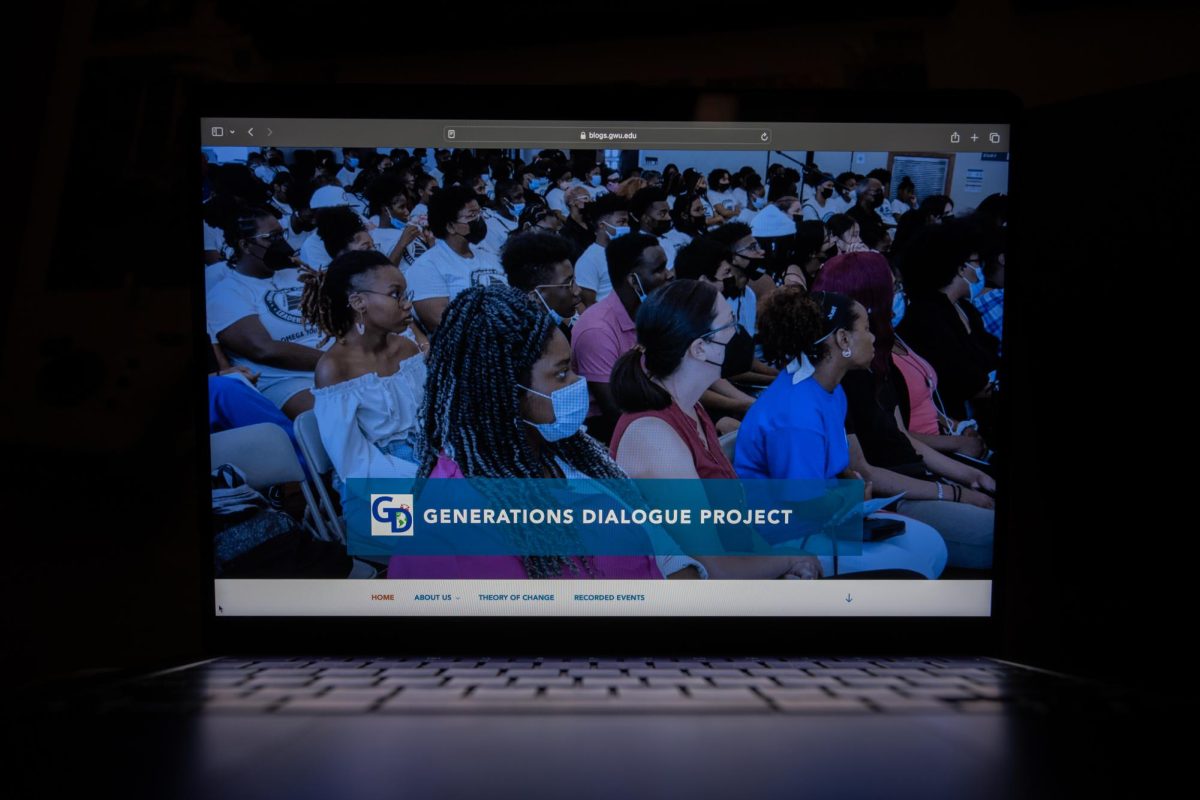Administrators have repeatedly declined to say whether they’ll take disciplinary action against a professor who said the N-word while instructing a class on anti-racism last month as students have called for her firing.
Officials said GWTeach professor Alicia Bitler stepped down from her position teaching the course after calling her use of the N-word an “oops moment” and later apologizing to the class. Interim University President Mark Wrighton and a University spokesperson have declined to say whether Bitler will face repercussions for saying the N-word in the Anti-Racism in STEM Education class, but Wrighton said students’ hurt “troubled” him after the Jan. 18 incident in a letter he sent to some students in the class.
Wrighton said in an interview last week that he discussed Bitler’s use of the N-word with the Board of Trustees.
“We discussed these incidents with the Board yesterday, and they are aware of the seriousness of the incidents and concerns about the wellbeing of our students,” he said. “We do not comment on personnel actions. Those are completely private.”
The Student Association condemned Bitler’s actions and called for her termination from the University in an Instagram post last week. Several student organizations have also condemned Bitler’s actions, including the Black Student Union and GW College Democrats.
Dwayne Wright – the director of diversity, equity and inclusion initiatives at the Graduate School of Education and Human Development, which oversees GWTeach – said Bitler has taken a leave of absence from the University, but officials would establish due process before potentially firing her. He said the process would normally entail an investigation and a trial, both of which are “typically” governed by an employment contract.
“All professors have to have due process before removal,” he said. “Everyone really in a job setting, particularly public but even private, need to have due process before removal.”
Students in the anti-racism class said Bitler had used the N-word in reference to the “Problem We All Live With” painting by Norman Rockwell, which features civil rights activist Ruby Bridges and the racial slur written in the background. Students in the class said Bitler told them she tends to use the word in academic settings.
Wright said he doesn’t think faculty should use racial slurs in the classroom in any context, and if they do, they must be aware of the societal consequences of their actions – determined by the reasoning for using the word to teach the class and the hurt that students may experience in the classroom.
“Each professor has to unfortunately make that decision on their own, and each professor knows when they’re doing something in the classroom that they might be open to scrutiny, public and private, and they might be open if they decide to use it as punishment,” he said.
Wright said Bitler’s use of the N-word doesn’t apply to the standards of academic freedom in the Faculty Code because Bitler openly admitted that her use of the racial slur was a mistake and apologized shortly after.
“There was no stated pedagogical reason for actually saying the word,” he said. “It was clearly a mistake on her part, she admitted. She decided to pull out in class because of the hurt her mistake had caused to students.”
Interim Provost Chris Bracey said the faculty code, which sets the standards for faculty behavior and expectation, is made under the recommendations of faculty members.
“Under the faculty code, the regular faculty participates in the formulation of policy and planning decisions affecting the quality of education and life at the University,” he said in an email. “This participation includes an active role in the development, revision or elimination of curricular offerings in each department or school.”
GSEHD Dean Michael Feuer, said GSEHD has set a “schoolwide priority” to integrate diversity, equity, inclusion and anti-racism into all its courses, in an email late last month.
“We are committed to strengthening the Anti-Racist STEM Education course,” he said “We are working in consultation with University leadership to develop and implement options for the class this semester and beyond.”
Feuer declined to say how Bitler was selected to teach the course.
GW’s academic freedom recommendations, which afford faculty “freedom of expression” in the classroom, do not allow faculty to engage in expression that can disrupt University “academic and educational functions,” according to a set of guidelines for academic freedom on the provost office’s website. There is no mention of the use of racial slurs in the guidelines and the academic freedom clause in the faculty code.
Students in the Anti-Racist STEM Education course said after Bitler’s use of the N-word, instruction in the class was put on pause for three classes as administrators made plans for the future of the course. Students said they were given the choice of a new instructor, guest speakers or independent study for the remainder of the course.
Faculty can also “enjoy freedom of investigation,” according to the academic freedom clause of the faculty code.
Higher education experts said professors should refrain from using racial slurs and sensitive language in the classroom unless it is for educational purposes and they should issue trigger warnings for students in class who may be affected by the language.
Jamel Donnor, an associate professor of American and African studies at the College of William and Mary, said if faculty are going to use highly sensitive language in class, they must be prepared to deal with the consequences that follow, like removal from the class or the University. He said higher education institutions are becoming more aware of race, after the recent racial reckoning that came with the Black Lives Matter movement and other race movements across the United States.
“It becomes harder and harder for professors to feign ignorance when there’s just so much out there,” he said.
James Turk, the director for the Centre for Free Expression and a distinguished visiting scholar at Ryerson University in Toronto, Canada, said professors should avoid using harmful language without academic “justification” like in Bitler’s case.
“It’s never acceptable to use those kinds of words gratuitously even in a descriptive way, that is, given how emotionally charged they are,” he said.







